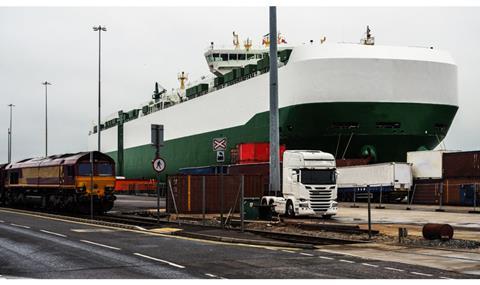
Southampton City Council has abandoned plans to charge vehicles to enter its proposed clean air zone (CAZ).
It said £15m-worth of air quality projects already in action over the past three years have slashed nitrogen dioxide (NOx) levels by 24% in the most polluted areas. These include cleaner city buses, freight consolidation, cleaner fuels used at the port and the introduction of low-emission taxis.
The council has also proposed a series of measures it said would further reduce NOx to within legal limits by 2020. For freight operators these include:
- At the port, shore side power and preferential charging [for cleaner vehicles] via the port HGV booking scheme
- Offering opportunities for businesses to assess and trial freight consolidation, thereby removing HGV trips in the city
- An accreditation scheme for HGV operators so businesses can identify those operators that are least polluting
Councillor Steve Leggett, cabinet member for green city, said: "Over the last few years we've led on a range of projects which have made a noticeable difference and made our air cleaner from pollution.”
He added that the city will be shortly announcing a “bold new Green City Charter”. This will address a range of environmental concerns, significantly reduce NOx emissions by 2025 and see Southampton become carbon-neutral by 2040.
Read more:
- Bath Clean Air Zone faces delay after ‘unprecedented’ response to proposals
- Birmingham sets daily clean air zone charge at £50 for non Euro-6 HGVs
- Government tells Leeds to think again over plans to aid hauliers affected by clean air zone
“We will be encouraging everyone across the city to get involved and to commit to working with us to achieve this goal."
The FTA welcomed the decision, which it said recognised the important role commercial vehicles play within the city’s economy.
Rebecca Kite, FTA environmental policy manager, said: “The proposed charging CAZ would have brought thousands of businesses and operations into its scope, causing operating costs to soar and irrevocably damaging its local economy.
“Most worryingly, the bustling Port of Southampton, which is UK’s second largest container terminal, would have been included in the zone.”
She added: “This is extremely positive news for local businesses and those regularly using the port.
"The decision recognises the importance commercial vehicles play in keeping the city’s economy thriving –delivering the goods and services businesses need to operate – and FTA is pleased these vehicles are not in line to receive heavy fines.”
The RHA called the decision to scrap charging plans "a victory for common sense".
Chief executive Richard Burnett said it’s a "massive win" for the industry and will come as a huge relief to hauliers who operate in the city.
“Southampton has made the right decision dropping a charging CAZ scheme that would have put businesses and livelihoods at risk," he said.
“This sends out a clear message to town halls across the country that CAZ schemes are a flawed concept – they’re short-sighted and anti-business. This is a victory for common sense.”













